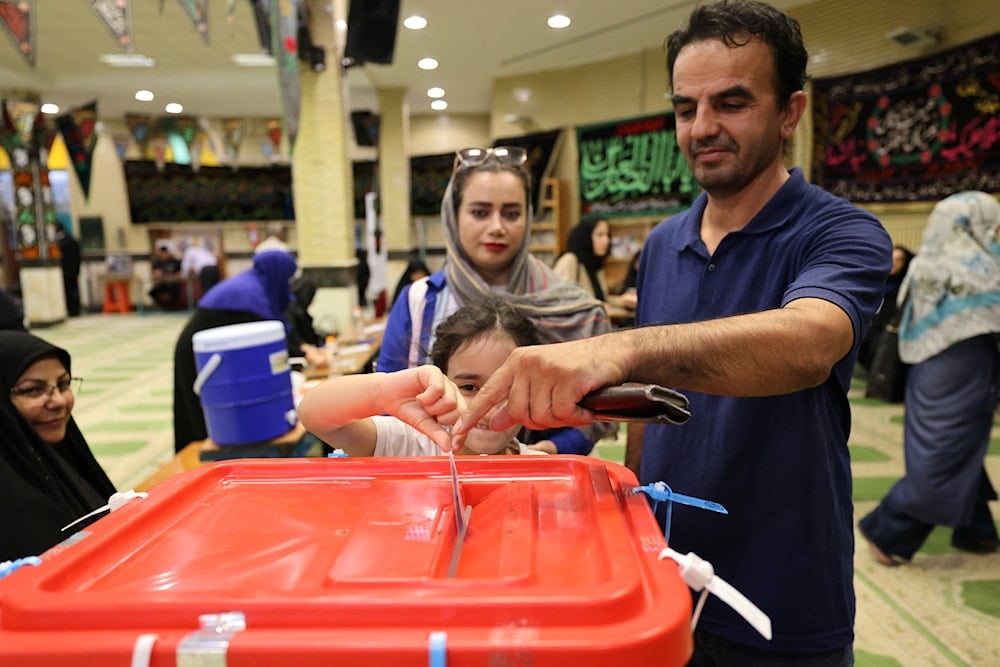Iranian presidential race remains tight amid higher voter turnout
Experts forecast that the turnout would reach between 44-48% compared to 40% in the previous round.
-

An Iranian child helps her father to cast his ballot at a polling station in Tehran on July 5, 2024. (AFP)
Iranians are heading to the polls on Friday for the runoff presidential elections, choosing between reformist candidate Masoud Pezeshkian and conservative Saeed Jalili.
The race is very tight, and the outcome remains unpredictable, as evidenced by the first round, when polls suggested until the last hours that the runoff would be between Pezeshkian and conservative parliament speaker Mohammad Baqer Ghalibaf, with Jalili expected to come in third.
Read more: Jalili, Pezeshkian discuss politics and culture in runoff debate
After conceding defeat, Ghalibaf endorsed Jalili in a statement. Former candidate and Tehran’s Mayor Alireza Zakani, who dropped out of the race in favor of Jalili, called for unity among conservatives to prevent a “third Rouhani government.”
By noon, over 10 million Iranians had cast their votes, surpassing the numbers during the same timeframe in the July 28 snap elections. Experts believe that the overall turnout would be between 44-48%, compared to the previous 40%.
This is the 14th presidential election held in the country since the Islamic Revolution in 1979 and will determine the successor of the late President Ebrahim Raisi, who tragically passed away in a helicopter crash alongside several other officials on May 19, including Foreign Minister Hosein Amir-Abdollahian.
Read more: Feeling defied, US waves sanctions card as Pakistan, Iran sign deals
During the late Raisi’s term, the Islamic Republic made significant shifts in its foreign relations, prioritizing stronger ties with neighboring countries and those with shared values and objectives. Jalili has pledged to pursue Raisi’s path and uphold the same strategic goals.
Former President Hassan Rouhani has faced criticism for focusing most of his efforts on securing a nuclear deal with Western countries and improving ties with them, despite their history of not fulfilling commitments, while largely neglecting to expand relations with Iran’s neighbors and the region.
The main topics driving the competitors apart are the economy, the direction of the country's development across several sectors, and foreign policy, including how to address illegal Western sanctions.
Pezeshkian is calling for a more pragmatic approach on the matter, saying that "Iran must not isolate itself," while Jalili is emphasizing that, while the Islamic Republic would continue to be open to talks with the West to revive the nuclear agreement, the focus must be on expanding ties with friendly and neighboring countries.
Read more: Iran's Acting President hails strategic Iran-China ties at SCO summit
However, top Iranian officials have repeatedly confirmed that, as the world sets its eyes on the country in anticipation of who would become the new president; no matter who chairs the high office, the principles guiding Iran since the victory of the Islamic Revolution in 1979 remain at the core of its policy, both domestic and foreign.

 3 Min Read
3 Min Read










